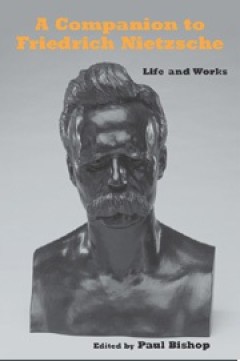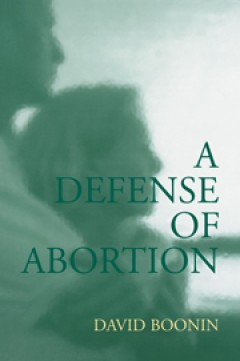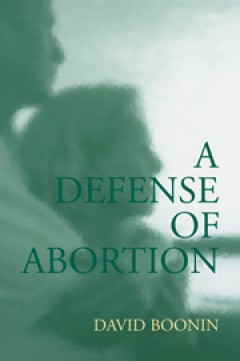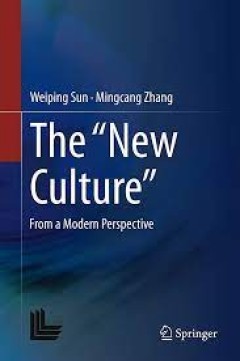Filter by

A Companion to Friedrich Nietzsche: Life and Works
Nietzsche looms over modern literature and thought; according to Gottfried Benn, 'everything my generation discussed, thought through innerly; one could say: suffered; or one could even say: took to the point of exhaustion - all of it had already been said . . . by Nietzsche; all the rest was just exegesis.' Nietzsche's influence on intellectual life today is arguably as great; witness the vari…
- Edition
- -
- ISBN/ISSN
- 9781571137739
- Collation
- -
- Series Title
- -
- Call Number
- -

Foucault and Educational Ethics
In his works on ethics, Foucault turned towards an examination of one's relationship with oneself and others. This differs from the modern approaches that explore the relationship between and the responsibilities of actors to each other by adopting criteria. Ethical criteria engender assumptions about the actors by focusing on their responsibilities. Instead of relying on criteria, Foucault's w…
- Edition
- -
- ISBN/ISSN
- 978-1-137-57496-1
- Collation
- XIV, 112 pages
- Series Title
- -
- Call Number
- -

Ethics for A-Level
What does pleasure have to do with morality? What role, if any, should intuition have in the formation of moral theory? If something is ‘simulated’, can it be immoral? This accessible and wide-ranging textbook explores these questions and many more. Key ideas in the fields of normative ethics, metaethics and applied ethics are explained rigorously and systematically, with a vivid writing st…
- Edition
- -
- ISBN/ISSN
- 9781783743902
- Collation
- -
- Series Title
- -
- Call Number
- -

Time Perspective Theory; Review, Research and Application Essays in Honor of…
This book is about time and its powerful influence on our personal and collective daily life. It presents the most comprehensive and up-to-date overview of contemporary knowledge on temporal psychology inspired by Zimbardo's work on Time Perspective (TP). With contributions from renowned and promising researchers from all over the globe, and at the interface of social, personality, cognitive an…
- Edition
- -
- ISBN/ISSN
- 978-3-319-07368-2
- Collation
- -
- Series Title
- -
- Call Number
- -

A Democratic Bearing
In this rich analysis of the changing ideals of citizenship, Stephen K. White offers a path for the renewal of democratic life in the twenty-first century. Looking beyond passive notions of citizenship defined in terms of voting or passport possession, White seeks a more aspirational portrait, both participatory and inclusive, that challenges citizens, especially in the middle class, to confron…
- Edition
- -
- ISBN/ISSN
- 9781316717394
- Collation
- -
- Series Title
- -
- Call Number
- -

A Defense of Abortion
David Boonin has written the most thorough and detailed case for the moral permissibility of abortion yet published. Critically examining a wide range of arguments that attempt to prove that every human fetus has a right to life, he shows that each of these arguments fails on its own terms. He then explains how even if the fetus does have a right to life, abortion can still be shown to be moral…
- Edition
- -
- ISBN/ISSN
- 9780511610172
- Collation
- -
- Series Title
- Cambridge Studies in Philosophy and Public Policy
- Call Number
- -

A Defense of Abortion
David Boonin has written the most thorough and detailed case for the moral permissibility of abortion yet published. Critically examining a wide range of arguments that attempt to prove that every human fetus has a right to life, he shows that each of these arguments fails on its own terms. He then explains how even if the fetus does have a right to life, abortion can still be shown to be moral…
- Edition
- -
- ISBN/ISSN
- 9780511610172
- Collation
- -
- Series Title
- Cambridge Studies in Philosophy and Public Policy
- Call Number
- -

A Defence of Usury
The utilitarian philosopher and jurist Jeremy Bentham (1748–1832) argues in this collection of letters for the cessation of government control of the rate of interest. The work first appeared in 1787 and is reissued here in the version published in Dublin in 1788. The final letter, addressed to Adam Smith, is a response to Smith's Wealth of Nations (1776), arguing against the limits to invent…
- Edition
- -
- ISBN/ISSN
- 9781107358447
- Collation
- -
- Series Title
- -
- Call Number
- -

The “New Culture” From a Modern Perspective
Contemporary China, in an era of globalization and in the midst of transition, now faces both great opportunities and unprecedented challenges. People are more and more becoming “economic man,” “technological man” and “one-dimensional man,” and are increasingly losing the virtue, dignity and beauty of human nature. When humanity’s habitat grows smaller and smaller as economic, tec…
- Edition
- -
- ISBN/ISSN
- 978-3-662-48011-3
- Collation
- -
- Series Title
- -
- Call Number
- -

The Vienna Circle Studies in the Origins, Development, and Influence of Logi…
This abridged and revised edition of the original book (Springer-Wien-New York: 2001) offers the only comprehensive history and documentation of the Vienna Circle based on new sources with an innovative historiographical approach to the study of science. With reference to previously unpublished archival material and more recent literature, it refutes a number of widespread clichés about "neo-p…
- Edition
- -
- ISBN/ISSN
- 978-3-319-16561-5
- Collation
- -
- Series Title
- -
- Call Number
- -
 Computer Science, Information & General Works
Computer Science, Information & General Works  Philosophy & Psychology
Philosophy & Psychology  Religion
Religion  Social Sciences
Social Sciences  Language
Language  Pure Science
Pure Science  Applied Sciences
Applied Sciences  Art & Recreation
Art & Recreation  Literature
Literature  History & Geography
History & Geography